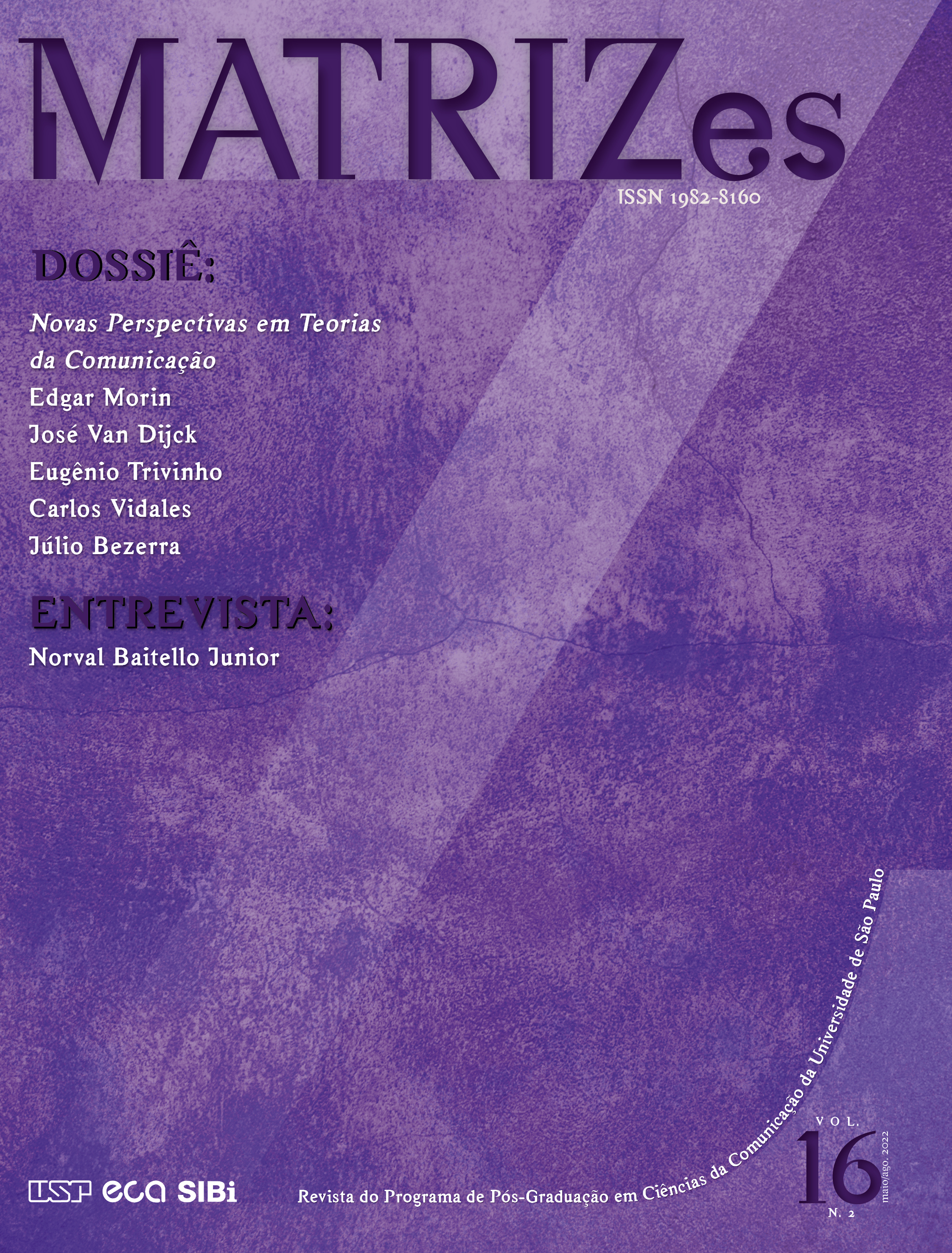Deleuze and Merleau-Ponty: Cinema in its Continuous Rebirth
DOI:
https://doi.org/10.11606/issn.1982-8160.v16i2p99-118Keywords:
Cinema, Deleuze, Merleau-PontyAbstract
Some of the most innovative and influential ideas in film theory in recent years are indebted to the works of Gilles Deleuze and Maurice Merleau-Ponty. It is possible to feel the presence of their philosophies and respective investments in the theory of cinema throughout the affective and sensory turns that have taken over the reflection on the seventh art. However, Deleuze and Merleau-Ponty are generally seen as opposites. Our bet is in the reverse direction. Throughout the article, we trace a slippery movement which draws the philosophers close and distances them and, at the end, outlines a kind of alliance. What is envisioned is a way of seeing and venturing through cinema in its continuous rebirth.
Downloads
References
Andrew, D. (1978). The neglected tradition of phenomenology in film theory. Wide Angle, 2(2), 44-49.
Barbaras, R. (2004). The being of the phenomenon: Merleau-Ponty’s ontology. Indiana University Press.
Barbaras, R. (2014). The being of the phenomenon: Merleau-Ponty’s ontology. Indiana University Press.
Barker, J. (2009). The tactile eye: Touch and the cinematic experience. University of California Press.
Beaulieu, A. (2004). Gilles Deleuze et la phénoménologie. Sils Maria.
Deleuze, G. (1974). Lógica do sentido. Perspectiva.
Deleuze, G. (1985). A imagem-movimento. Brasiliense.
Deleuze, G. (1992). Conversações. Editora 34.
Deleuze, G. (1995). A imagem-tempo. Brasiliense.
Deleuze, G. (2007). Francis Bacon: Lógica da sensação. Jorge Zahar.
Foucault, M. (1977). Theatrum Philosophicum. In M. Foucault, Language, counter-memory, practice (D. F. Bouchard, Ed., pp. 165-196). Cornell University Press.
Hagin, B. (2011). Inverted identification: Bergson and phenomenology in Deleuze’s cinema books. New Review of Film and Television Studies, 11(3), 262-287.
Hughes, J. (2008). Schizoanalysis and the phenomenology of cinema. In I. Buchanan & P. MacCormack (Eds.), Deleuze and the Schizoanalysis of Cinema (pp. 15-26). Continuum.
Husserl, E. (2005). Phantasy, image consciousness, and memory (1898-1925). Springer.
Kennedy, B. (2000). Deleuze and cinema: The aesthetics of sensation. Edinburgh University Press.
Marks, L. (2000). The skin of film. Duke University Press.
Merleau-Ponty, M. (1983). O cinema e a nova psicologia. In I. Xavier (Org.), A experiência do cinema (pp. 103-118). Graal.
Merleau-Ponty, M. (1991). Signos. Martins Fontes.
Merleau-Ponty, M. (1994). Fenomenologia da percepção. Martins Fontes.
Merleau-Ponty, M. (2000). O visível e o invisível. Perspectiva.
Merleau-Ponty, M. (2004). O olho e o espírito. Cosac Naify.
Merleau-Ponty, M. (2006a). A natureza. Martins Fontes.
Merleau-Ponty, M. (2006b). Estrutura do comportamento. Martins Fontes.
Ramos, F. P. (2012). A imagem-câmera. Papirus.
Shaviro, S. (1993). The cinematic body. University of Minnesota Press.
Sobchack, V. (1992). The address of the eye: A phenomenology of film experience. Princeton University Press.
Ungaro, J. (2000). Andre Bazin: Genealogies d’une theorie. L’Harmattan.
Virilio, P. (1997). Voyage d’hiver. Parenthèses.
Wambacq, J. (2017). Thinking between Deleuze and Merleau-Ponty. Ohio University Press.
Downloads
Published
Issue
Section
License
Copyright (c) 2022 Júlio Bezerra

This work is licensed under a Creative Commons Attribution-NonCommercial-ShareAlike 4.0 International License.
Authors who publish in this journal agree to the following terms:
- Authors retain the copyright and grant the journal the right to first publication, with the work simultaneously licensed under the Creative Commons Attribution License (CC BY-NC-SA 4.0) which allows sharing of the work with acknowledgment of authorship and initial publication in this journal for non-commercial purposes.
- Authors are authorized to assume additional contracts separately, for non-exclusive distribution of the version of the work published in this journal (eg, publishing in institutional repository or as a book chapter), with acknowledgment of authorship and initial publication in this journal.






















